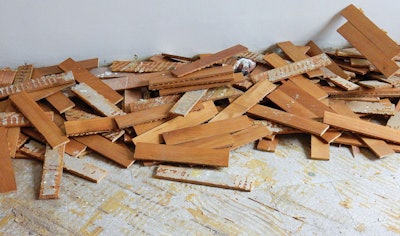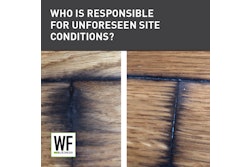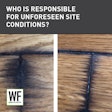
I recently heard a story about a unique collection method used by a flooring contractor who had not received payment for completed work. The contractor had installed new hardwood floors in a house being renovated and listed for sale. Despite numerous demands and threats, the flooring contractor was told he would be paid only when the house sold. After waiting a few more months, the contractor used the lockbox code to enter the empty house and tore out all of the flooring he had installed. Was this legal? He had not been paid for his materials, so was it fair that he could take them back?
While this type of “rough justice” might have been gratifying for the contractor, unfortunately for him, it was entirely illegal. The property owner filed charges against the contractor for criminal trespass and destruction of property, and it turned into a colossal mess.
If a contractor cannot reclaim installed materials, then what can he or she do to obtain payment in a situation like this? There are a few options.
1) Sue the party that hired the contractor and seek a money judgment in small claims court. Most states have a “small claims” or “conciliation” court where parties can pursue smaller dollar amounts (typically under $15,000, but state laws vary). If you win, you receive a money judgment but then must attempt to collect it—easier said than done.
2) Sue in the applicable district court or circuit court. If your claim exceeds the small claims court limit, you must sue in the applicable district court or circuit court, which can be expensive, because if your business is a corporation or limited liability company, it must have a lawyer represent it in court.
3) File a lien. If contractors follow their state’s lien requirements, they can secure an interest in the property, similar to a mortgage. The lien would need to be paid upon a sale or refinancing, and the contractor could even start a foreclosure action to seize the house, similar to a mortgage foreclosure. A lien foreclosure requires a district court lawsuit.
Liens are not a foolproof way to obtain payment, but they are an extra remedy that contractors may pursue beyond a money judgment. I recommend that every contractor become familiar with the lien laws in their state and follow the appropriate steps to preserve lien rights. What don’t I recommend? Sneaking into a house and tearing out the flooring.

































